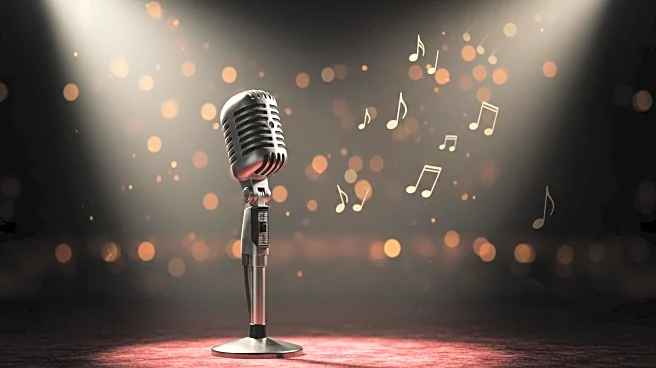What's Happening?
Lana Del Rey has shared a snippet of a new song on Instagram, which appears to criticize fellow artist Ethel Cain. The song, tagged as 'Track 13' and produced by Jack Antonoff, includes lyrics that reference Cain directly, mentioning her by name and alluding to a 'Chicago pose' and 'the most famous girl at the Waffle House.' Fans have linked these lyrics to a 2022 New York Times profile on Cain and a deleted photo Cain shared with Jack Donoghue, which resembled a photo Del Rey took in 2022. Del Rey commented on the situation, expressing confusion and disturbance over Cain's past actions and comments. Cain responded by noting that Del Rey has blocked her on Instagram.
Why It's Important?
This development highlights the ongoing tensions and dynamics within the alt-pop music scene, where artists often engage in public disputes that can influence fan perceptions and media narratives. The interaction between Del Rey and Cain may affect their respective fan bases and could impact their public images. Such disputes can also drive engagement and interest in their music, potentially affecting album sales and streaming numbers. The situation underscores the role of social media in shaping artist relationships and public discourse.
What's Next?
As the situation unfolds, fans and media outlets will likely continue to analyze and discuss the implications of Del Rey's song snippet. Both artists may address the controversy further, either through social media or official statements. The incident could lead to increased attention on their upcoming projects, with Del Rey teasing new music and Cain currently touring North America. The public and industry reactions may influence how both artists navigate their careers and interactions moving forward.
Beyond the Headlines
The exchange between Del Rey and Cain raises questions about the impact of social media on artist relationships and the potential for misunderstandings or conflicts to escalate publicly. It also highlights the pressures artists face in maintaining their public image and the influence of fan communities in shaping narratives. The situation may prompt discussions about the ethics of public criticism and the responsibilities of artists in managing their online presence.










